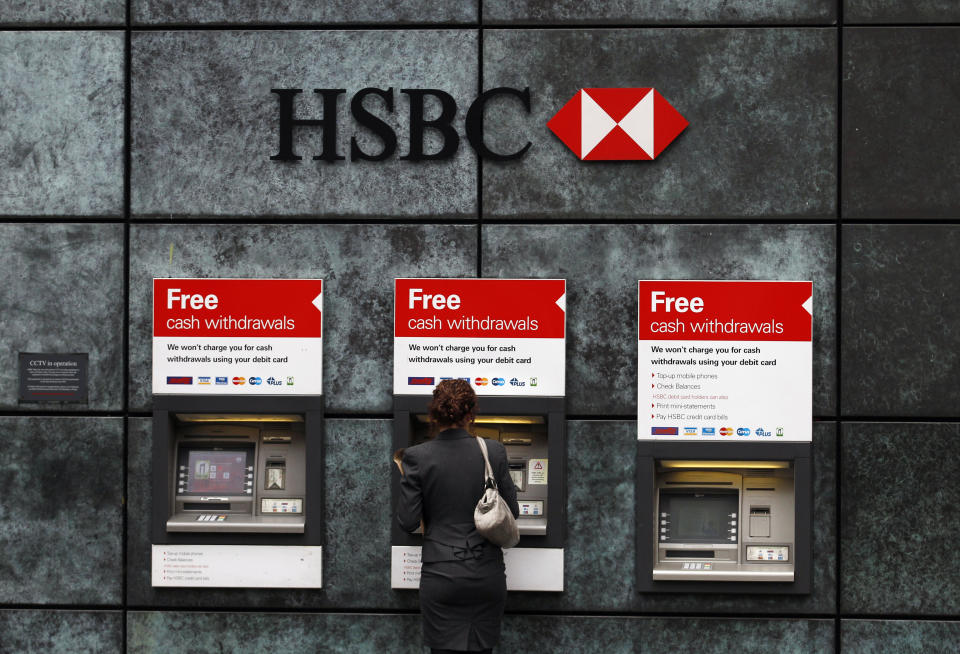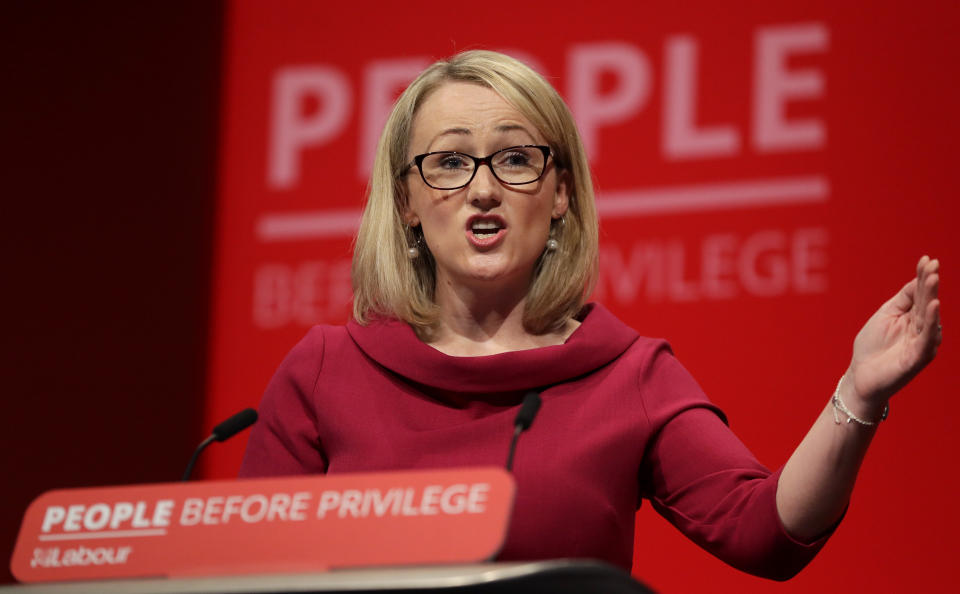Labour says HSBC's flat 40% overdraft fee is 'not fair'

Labour has said HSBC’s planned 39.9% interest rate on all customers’ overdrafts is “not fair,” and said it could cap overdraft fees if it won the UK election.
The party’s shadow business secretary Rebecca Long-Bailey told BBC Radio 5 Live on Friday: “It’s not fair and it’s why John McDonnell has talked about the rates charged on credit cards and overdrafts.
“Once you’re in your overdraft it’s difficult to come out of it. It’s something we certainly need to look at.”
HSBC (HSBA.L) sparked frustration among many customers this week as they discovered they faced a significant hike in fees for using their overdrafts.
It comes after a clampdown by UK regulators on even higher fees already dangerous for vulnerable customers in particular, with a review finding 1.5% of UK bank customers paid more than 50% of fees.
New rules coming into force next April require banks to show a simple annual interest rate so customers can shop around when they need credit.
The flat fee could benefit such customers but prove a headache for many others who currently enjoy much lower rates. HSBC also scrapped a £5 daily charge for unarranged overdrafts.
READ MORE: Fears over rising overdraft rates across the UK after HSBC decision
Shadow chancellor McDonnell had made a clearer pledge in a speech last April that his party would “end the misery of permanent debt and extend the cap on borrowing charges to overdrafts.”

The party said then around 2.7 million people were stuck with permanent overdrafts because of low pay and high living costs, and said its 2018 analysis suggested it could save them around £86 each a year.
But one expert warned at the time the plan could inadvertently force millions of customers to turn to the more dangerous pay-day lending market.
Dr John Gathergood, an economist at the University of Nottingham, said a cap on fees could see banks respond by withdrawing overdrafts altogether.
READ MORE: Labour vows to cut rail fares by a third if it wins power
He told PA last April such an outcome would be “effectively killing the market and forcing people to turn to worse alternatives.”
He added: “The reality is that when people need money – especially if they’re desperate or facing an emergency – they might resort to payday lenders or even illegal lenders.
“So suddenly we face a situation where consumers could once again be at the mercy of lenders that exploit their circumstances and lack of financial awareness.”
An HSBC spokesman told Yahoo Finance UK overdrafts would remain the same or be cheaper for seven in 10 who used them.
A fee-free £25 buffer will also be added on several accounts, and heavy users will be contacted in the New Year, he added.
Madhu Kejriwal, HSBC UK’s head of lending and payments said: “An overdraft gives people a bit of flexibility with their finances especially if there is an unexpected cost or emergency repair required. The new £25 buffer we are introducing will also give people some peace of mind that a small miscalculation on spending won’t incur overdraft charges.”
“By simplifying our overdraft charging structure we are making them easier to understand, more transparent and giving customers tools to help them make better financial decisions.”
